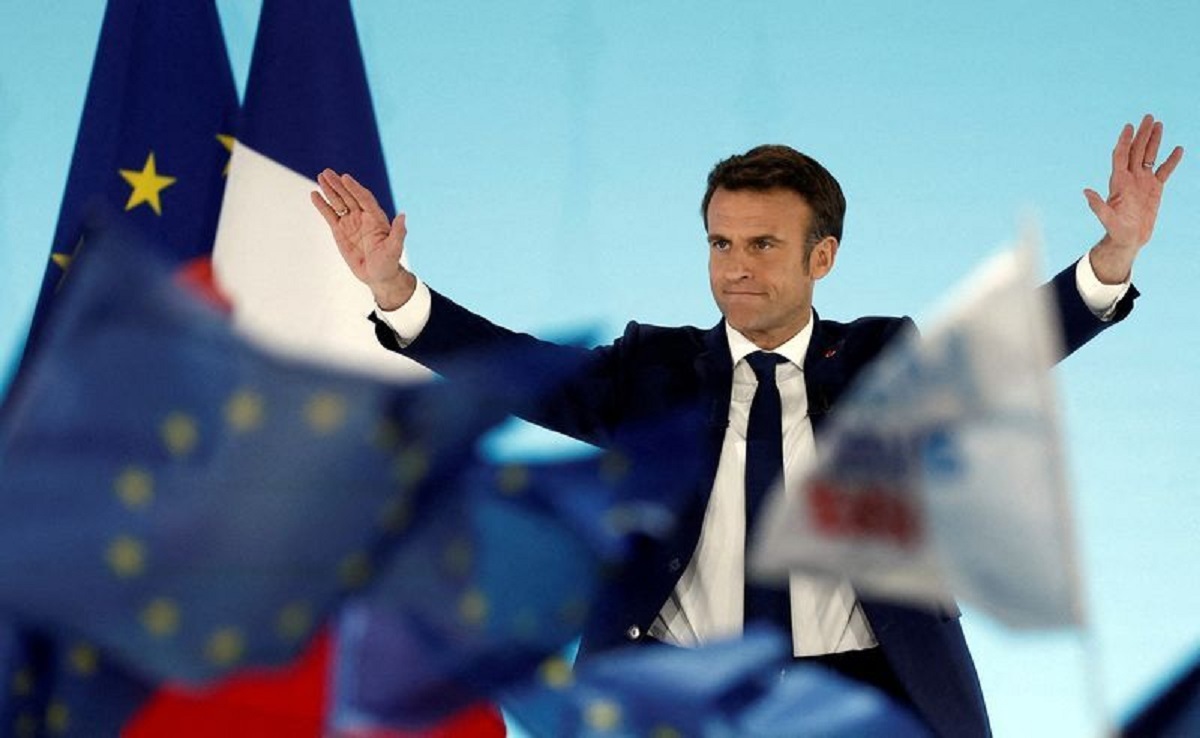Abolqassem Delfi, while referring to the victory of Macron in the recent presidential elections in France with about 58 percent of the votes, told the Strategic Council on Foreign Relations that the implementation of what Macron has described so far regarding the policies of his future government depends on the results of the French parliamentary elections, which will be held in less than two months. If the majority of the parliament is with the president, Macron’s plans, like his first term in office, will be implemented without any problems.
“Otherwise, the implementation of his policies depends on the government that comes to power; Because the prime minister may be elected from another party, and in France we will have a coexistent government like the Chirac and Mitterrand periods. Of course, the polls and predictions have been that the parliament will probably be with the president”.
France Foreign Policy
This expert of international relations said that the foreign policy of France is dependent on the composition of the next parliament, adding that Macron’s European policies appear to be strengthened with the help of some more pro-French countries, such as Germany, Spain and Portugal, which issued a message on election day urging the French people to support Macron.
Delfi said the main problem of Europe at the present time is the war in Ukraine and its consequences. Referring to the concerns of EU member states about the cutting of Russia’s oil and gas in emergency situations, he said that Macron and the EU are primarily trying to reduce their dependence on Russian oil and energy and find new sources of energy supply.
“One of these resources in the Middle East will be Iran, with its high energy reserves, and if energy is not overshadowed by sanctions after reviving the JCPOA, as in the past, energy could be a good ground for cooperation.
Special relationship between Putin and Macron
He pointed to the impact of the Ukraine war on the export of crops and other agricultural products and the future foreign policy approach of the French government and Europe to supply new agricultural resources, and said Macron had made efforts to prevent and control the war, which is why his relationship with Putin had special conditions among European countries, and Putin was one of the first presidents in the world to congratulate Macron on his election. This shows the positive aspects of French-Russian relations.
This former diplomat reminded that Macron’s inclination to relations with Russia is not favored by Europe as Macron criticized the recent visit by UK Prime Minister Johnson to Ukraine.
Britain wants Russia to be severely punished and to leave Ukraine defeated. Therefore, there is no one-sidedness and coordination in European policies towards the Ukraine crisis, he said.
Delfi added that the Ukraine crisis shows that Europe does not have the ability to respond appropriately militarily, and Ukraine cannot benefit from the direct intervention of this organization due to non-membership in NATO.
He said the US and UK do not welcome the idea of forming an independent European army, adding that NATO’s inability to defend European countries has underscored the importance of a common European defense, but there is still a long way to go before such a plan can be implemented, and it is unlikely that such an independent army will emerge in the next five years and perhaps preliminary measure would be taken only.
Macron’s Middle Eastern policies
Referring to Macron’s Middle Eastern policies in his second term as France president, he said that after Britain’s withdrawal from the European Union, European Middle East policies have become weaker than ever, and over the past two decades, France’s presence in the region has gradually diminished and it has not experienced an effective presence. France lost Syria and the situation in Lebanon is not good. Despite its efforts to pretend, relations with other Persian Gulf Coordination Council countries, even with Saudi Arabia, are not favorable, except with the UAE. France relations with Turkey are also tense.
Delfi emphasized that France is trying to utilize the opportunity of non-presence of the US in the region, saying that it seems that Iran, with its high political, military, social and energy capacities, can be a suitable partner for countries that want to cooperate with the aim of creating peace and stability in the region. Tehran and Paris have had relatively extensive relations in the past and they have been one of our good economic partners, but due to sanctions, this volume has sharply decreased.
“The countries of the region have linked their security and defense to countries outside the region, and although they have arms purchases from France, they have not become systematic and contractual relations with France and do not have an effective presence in the region. In this situation, France needs to cooperate with an element other than the elements with which it has previously cooperated, and Iran can play an important role in this situation if the sanctions are lifted”.










0 Comments